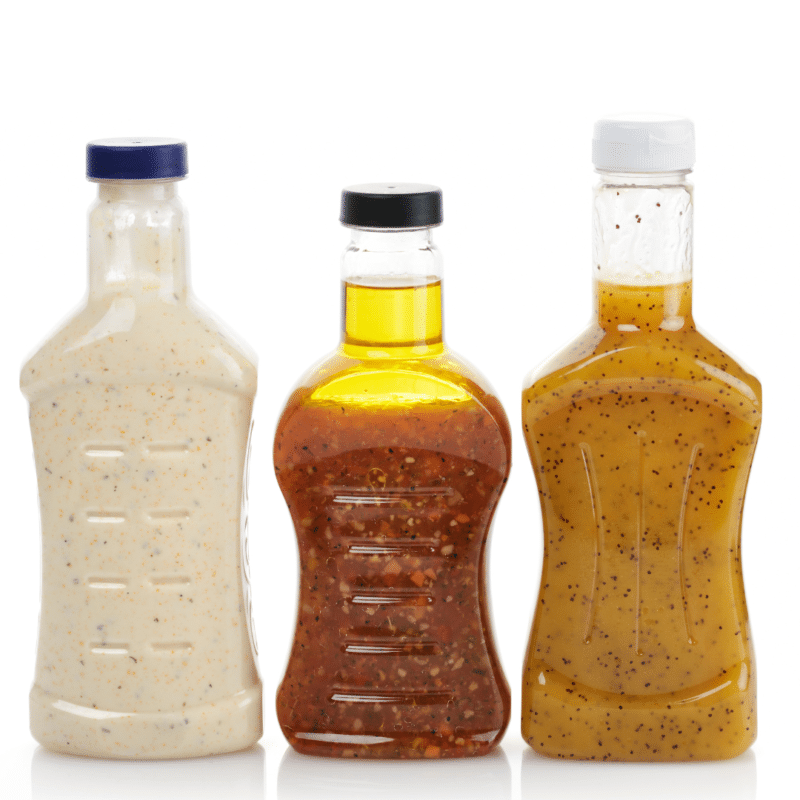Menopause is when your MENstrual cycle PAUSEs—for good. It’s not a disease to be treated, but rather a normal stage of life. Menopause “officially” starts 12-months after your last period. That happens, on average, around the age of 51.
This change doesn’t happen overnight, though. There are usually a few years of the menopausal transition, sometimes called “perimenopause” which often starts in the early- to mid-40s. This is when you may start feeling symptoms like:
- Weight gain—especially around the midsection
- Hot flashes and night sweats
- Difficulty sleeping
- Moodiness
Menopause probably isn’t anyone’s idea of fun and brings on an array of changes related to the body and hormones. Once perimenopause finishes and menopause officially begins, your risks for heart disease and osteoporosis rise.
Why does this even happen? Some of the reasons behind all these changes include hormones, metabolism, stress levels, and lifestyle.
Many of the most common side effects, such as hot flashes and night sweats, appear then decrease and eventually disappear. Other symptoms can persist, and a prime example is menopause-related weight gain.
MENOPAUSE RELATED WEIGHT GAIN: Appetite and metabolism are a finely orchestrated complex system involving the brain and several peripheral organs. Weight loss and weight maintenance are particularly challenging after menopause. Reproductive hormones, such as estrogen and progesterone, and Peptides mediating Energy balance, such as leptin, ghrelin and insulin, play a key role.
The weight related changes include:
- Increased fat mass (total body fat and in particular midsection fat)
- Decreased muscle mass
- Reduced energy expenditure (calories burned at rest and during activity).
These changes can represent a new reality for women who may have never had a tendency to gain excess weight. For those already affected by excess weight, the additional body changes further challenges weight reduction.
So what hormonal changes occur during menopause? Progesterone loss affects weight in part through increased water retention. Decreased estrogen levels can minimize the body’s fullness signals and increase the susceptibility of binge eating.
Insulin, the main storage hormone in our body, is produced by the pancreas and promotes the storage of glucose (simple sugar obtained from food) into the cells for later use as a source of energy. Insulin resistance is a common condition seen in menopause that causes cells to stop responding to insulin, resulting in high blood sugar because the insulin cannot do it’s job and move sugar into the cell. Insulin resistance is associated with increased fat deposition, particularly in the midsection (visceral fat) and has been linked to obesity, which in turn can worsen the risk of diabetes and heart disease.
Leptin is a fullness hormone produced by our fat tissue, that works by regulating appetite by letting your body know you are “Full”. Ghrelin, which is produced by the stomach, is essentially the opposite of leptin. It’s the hunger hormone that sends a message to your brain indicating that your stomach is empty and needs food and it’s main function is to increase appetite.
Estrogen and thyroid hormones interact and affect each other in a variety of ways, and subclinical hypothyroidism can often remain undetected because many of the symptoms (such as fatigue, sleep disturbances and mood swings, for instance) are attributed to menopause.
TREATMENT OPTIONS: So how do we treat menopause-related weight gain? Counterintuitively, hormone replacement therapy, one of the most common treatments for many menopause symptoms, has not been shown to affect weight significantly (causing neither gain nor loss).
Diet and physical activity are key components of any weight management program, and are part of a comprehensive successful approach.
Insulin resistance can be tamed by eating patterns such as Low-carb or a Mediterranean style-diet which have proven effective. Importantly, finding a way of eating that is sustainable, non-restrictive and provides the body’s nutrients are crucial to success.
Physical activity also helps reduce insulin resistance and support weight loss. The ideal activity plan combines aerobic exercise, which burns calories and improves cardiovascular health, with resistance training, which builds muscle and reduces fat. Physical activity should be enjoyable and sustainable. Keep in mind that it does not necessarily need to involve a traditional gym either. Allow yourself to explore outdoor hobbies or group activities.
Some women may benefit from the use of anti-obesity medication On- or off-label medications — such as metformin, liraglutide, phentermine/topiramate, naltrexone/bupropion, tirzepatide and semaglutide —that can help counteract some of the effects. Medication should always be used as an adjunct to nutrition, lifestyle & behavior within a structure program and proper medical supervision by a trained specialist.
NUTRITION TIPS: Because the body goes through all these changes, its nutritional needs also change. Here are some expert nutrition tips to help navigate this stage:
- Drink enough fluids
As you age, you may slowly lose your sense of thirst. This means you can become less hydrated without even noticing it, through no fault of your own. Plus, some key menopausal symptoms may be improved simply by drinking more fluids. If hot flashes, night sweats, vaginal dryness, or bladder infections are affecting you, try drinking at least six 8-oz glasses per day to help hydrate you. Ideally, that drink is water or herbal tea.
- Avoid alcohol
You know that alcohol isn’t the best drink for your health—especially too much. Alcohol can worsen hot flashes and make it harder to stay asleep. It can also increase your risk of getting or worsening many health conditions. Not to mention it can make you forgetful and confused, and can even lead to loss of muscle mass, balance problems, falls, and accidents. Plus, it has nutrient-free calories that can contribute to weight gain.
- Cut down on spicy foods, caffeine, and sugar
If hot flashes bother you, consider avoiding common triggers like spicy foods and caffeine.
When it comes to sugar, the simplest way to cut down is to replace sugar-sweetened drinks with water or herbal tea. If the thought of cutting out all desserts doesn’t sound fair, try eating smaller portions or even half-sized desserts. A recent study showed that menopausal women who ate more sweets, fats, and snacks suffered from menopausal symptoms more than those who ate more fruits and vegetables. We’re talking hot flashes, night sweats, muscle and joint problems, and bladder issues were all worse for the dessert-lovers.
- Eat smaller quantities of food
Did you know that at 50 years old you need about 200 fewer calories per day than you did during your 30s and 40s? That’s assuming you were a healthy weight and you want to maintain a healthy weight as you get older.
This means that by continuing to eat the same amount of food as you did in your 30s and 40s, you’ll start gaining weight. On average, women in their 50s and 60s gain about 1.5 pounds every year. If, on the other hand, you’re looking to lose weight, try to eat about 500 calories less than what you need to maintain your weight. Eating less food can be really hard! Try having smaller portions and using mindful eating techniques to help you get used to it. Avoid eating large meals close to bedtime, particularly if you have trouble sleeping.
- Eat higher quality foods
Eating less food doesn’t mean you need less nutrition, though. That’s why it’s really important to eat quality foods with a lot of nutrients (i.e., nutrient-dense foods). These include fruits, vegetables, and whole grains. When it comes to protein for your muscles and bones, eat legumes, nuts, seeds, fish, and/or poultry. A recent study showed that menopausal women who ate the most greens had the fewest complaints about typical menopausal symptoms like hot flashes. By eating more nutrient-dense foods like these ones you’ll get more vitamins, minerals, fiber, and protein—all of which are very important to maintain your health at and beyond menopause. Your bones love calcium and vitamin D. Some of the richest sources of these are dairy products, fish with bones, and foods fortified with these nutrients (check your labels).
- What about soy and phytoestrogens?
Phytoestrogens are plant compounds that mimic the effects of estrogen—the hormone that your body slows down the production of during menopause. Soy is the best-known food containing these phytoestrogens and is often recommended for menopausal symptoms like hot flashes. In addition to food sources, you can also find dietary supplements with high amounts of phytoestrogens. Some women choose to take these supplements instead of hormones.
Research shows inconsistent results when it comes to phytoestrogens for menopausal symptoms. That means some studies show a small reduction in hot flashes, while others don’t.
Bottom line is that when it comes to menopause, understand that this is a normal biological process. Some unwelcome symptoms such as weight gain may show up to stay. Understand that a comprehensive approach including lifestyle & behavior, nutrition, physical activity, consideration of medical intervention such as medication can tame menopause associated weight gain. Be sure to drink enough fluids, but not alcohol; cut down on spicy foods, caffeine, and sugar; eat smaller quantities of higher-quality food; and have soy if you enjoy it, but don’t expect it to miraculously solve any bothersome menopausal symptoms.
Most importantly, remember that health is more than a number on the scale. Know that there is evidence-based help available and visit us to learn more about optimal health success.





